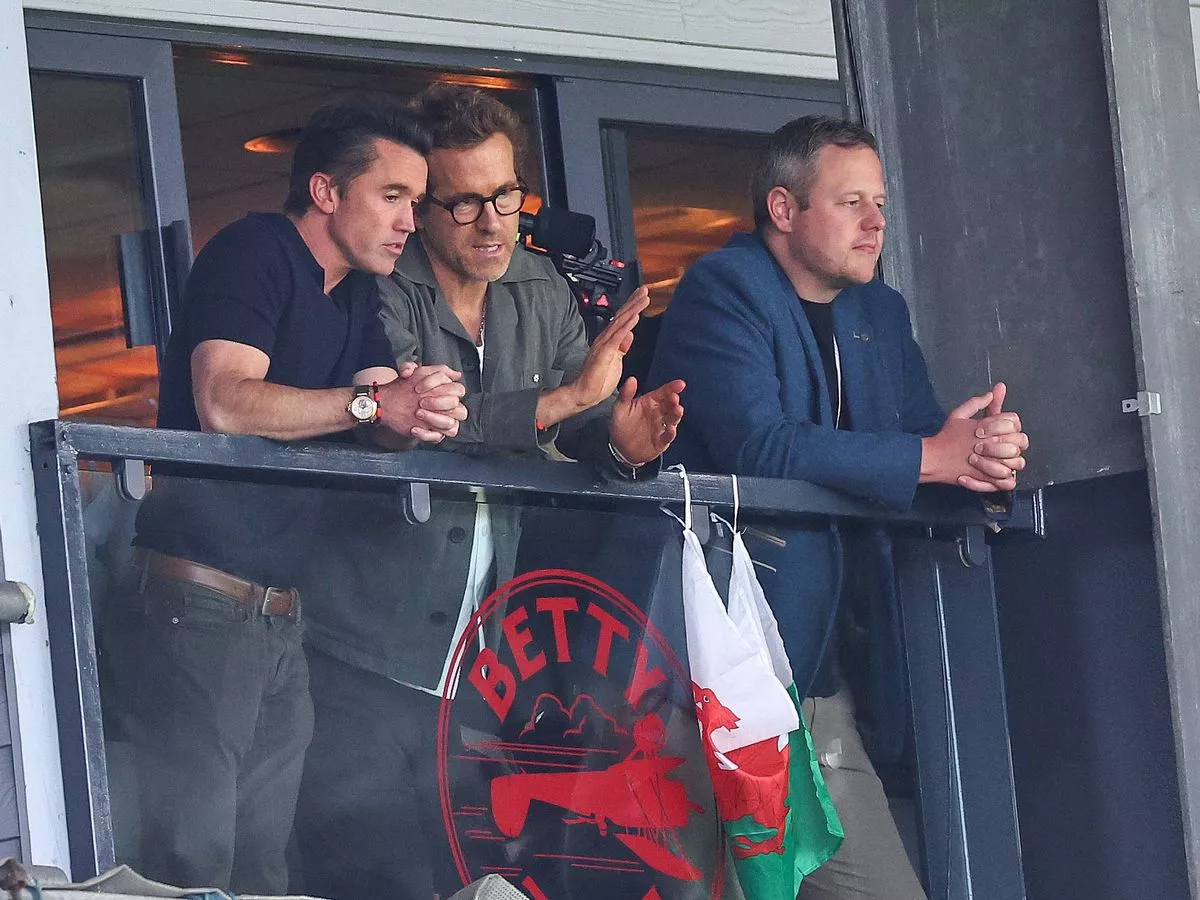Ryan Reynolds and Rob Mac get £100m Wrexham reality check as warning issued over Prem dream
By Liam Randall
Copyright walesonline

Wrexham’s Hollywood owners have been warned that a claimed £350million valuation of their football club could be wide of the mark. Reports emerged in June that actors Ryan Reynolds and Rob Mac were talking to advisers about selling a minority stake in the Championship club. The proposed sale, aimed at boosting the playing budget and paying for a new Kop stand , would place the valuation at up to £350m, according to Bloomberg . The Red Dragons have enjoyed unprecedented levels of success since being bought by the pair in February 2021, achieving three consecutive promotions from the National League to the second tier. The co-owners paid a nominal amount to purchase the club from the Wrexham Supporters Trust, subject to an immediate investment of £2m. The suggested price tag would therefore represent a huge return on their initial outlay should Reynolds and Mac decide to sell the North Wales outfit. However, a football finance expert believes Wrexham ‘s current valuation is closer to £100m – less than a third of the sum outlined in the report. Dr Dan Plumley, a lecturer at Sheffield Hallam University, also cautioned that achieving the owners’ dream of reaching the Premier League could be a tough challenge. “Valuing a football club is always part science and part art and ultimately it is about what someone is prepared to pay,” he told Grosvenor Casinos . “However, some sensible judgement on the numbers can get us close. “Typically, a football club would command a valuation of around 1.5 to 2 times turnover, plus the physical assets it owns and the respective intangibles of brand value, heritage and the power of the fan base. “Even on the numbers we can see, that would put Wrexham at a valuation of circa £50m based on 2024 numbers. If the turnover has been higher in 2025 and jumps again in 2026 then talks of a £100m valuation becomes more feasible. “Wrexham are trying to grow their turnover in the future through stadium expansion which is commendable. These are long-term projects, however, and would not lead to valuation jumps straight away.” He added: “They’ve made positive strides on and off the pitch in the last three years. The next step won’t be easy as they battle with increased costs, Championship PSR (Profit and Sustainability Rules) and other clubs in receipt of Premier League parachute payments.” As well as success on the pitch, Wrexham have achieved some impressive financial results in recent years. According to the latest figures, the club’s revenue for the 2023/24 financial year stood at £26.7m at a time when they were still in League Two. That sum represents a whopping 155 per cent rise from the previous year’s figure of £10.5m. The success of the Welcome to Wrexham documentary has played a key role in raising the club’s profile worldwide, leading to a sharp rise in revenue from overseas. Reynolds and Mac have already handed over a minority stake in Wrexham to the Allyn family from New York, whose medical company Welch Allyn sold for more than $2bn in 2015. The club used its financial power to spend big in the summer transfer window, splashing out around £33m on 13 new players after achieving promotion from League One in April. Debate continues to rage over the reported £350m valuation of Wrexham, which could make them the most expensive club in the Championship. However, club adviser Les Reed has spoken out against those who question its validity. Posting on business social networking website LinkedIn back in June, the former Charlton manager and Southampton vice-chairman compared Wrexham’s rise up the divisions to that of top flight sides likes Brighton, Bournemouth and Brentford. He said: “If investment in a well run project with a sound revenue strategy is simply a ‘gamble’ would it explain why Brighton and Brentford have also managed to be sustainable Premier League clubs owned by successful stalwarts of the gambling industry? “Are Bournemouth taking a huge gamble on developing a new stadium and opening a state of the art training ground? “Is it therefore wrong to suggest that an historic Welsh club with a huge fan-base and global recognition, run by successful people and owned by proven successful business people regardless of celebrity, can follow this path? Why would serious investors not want a stake in this journey?”



